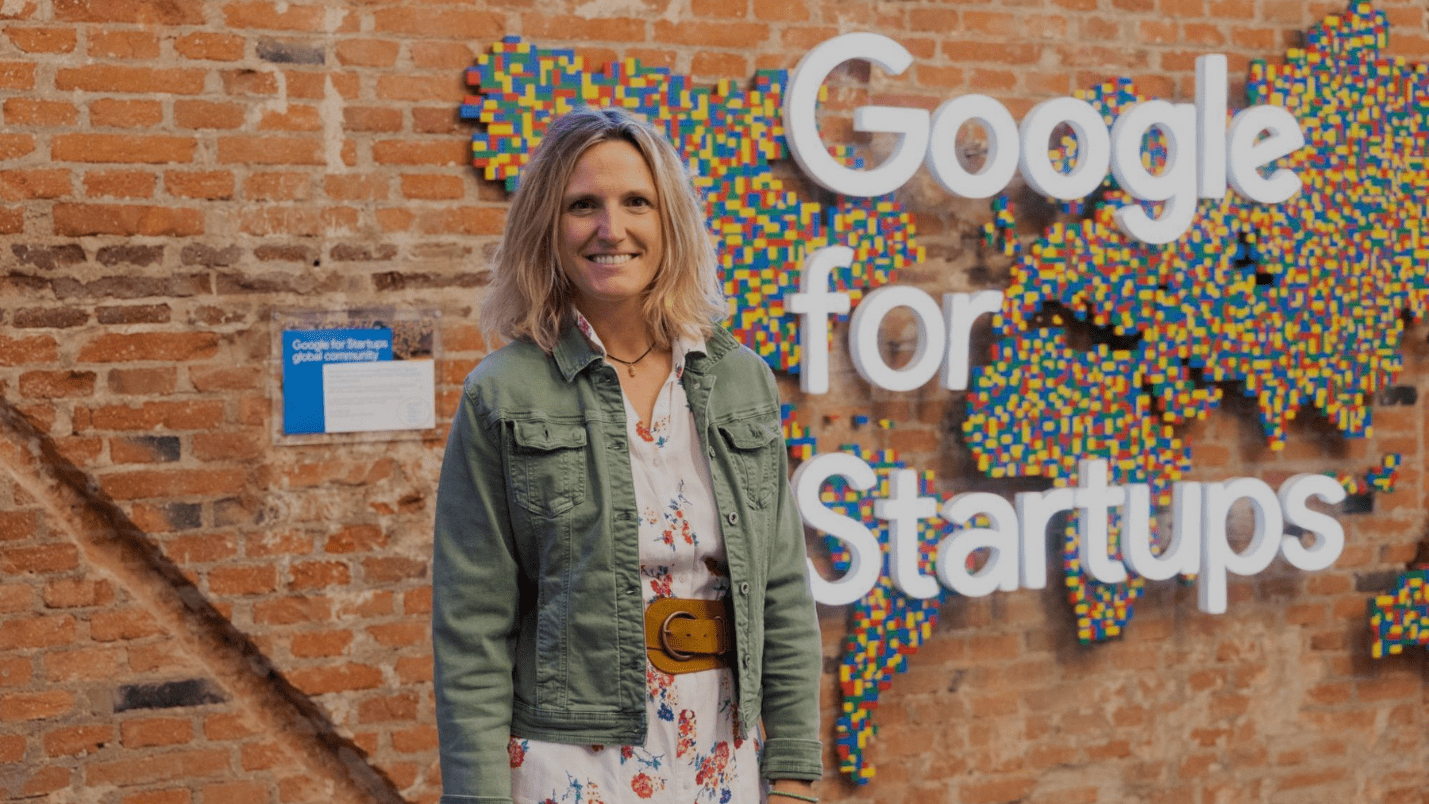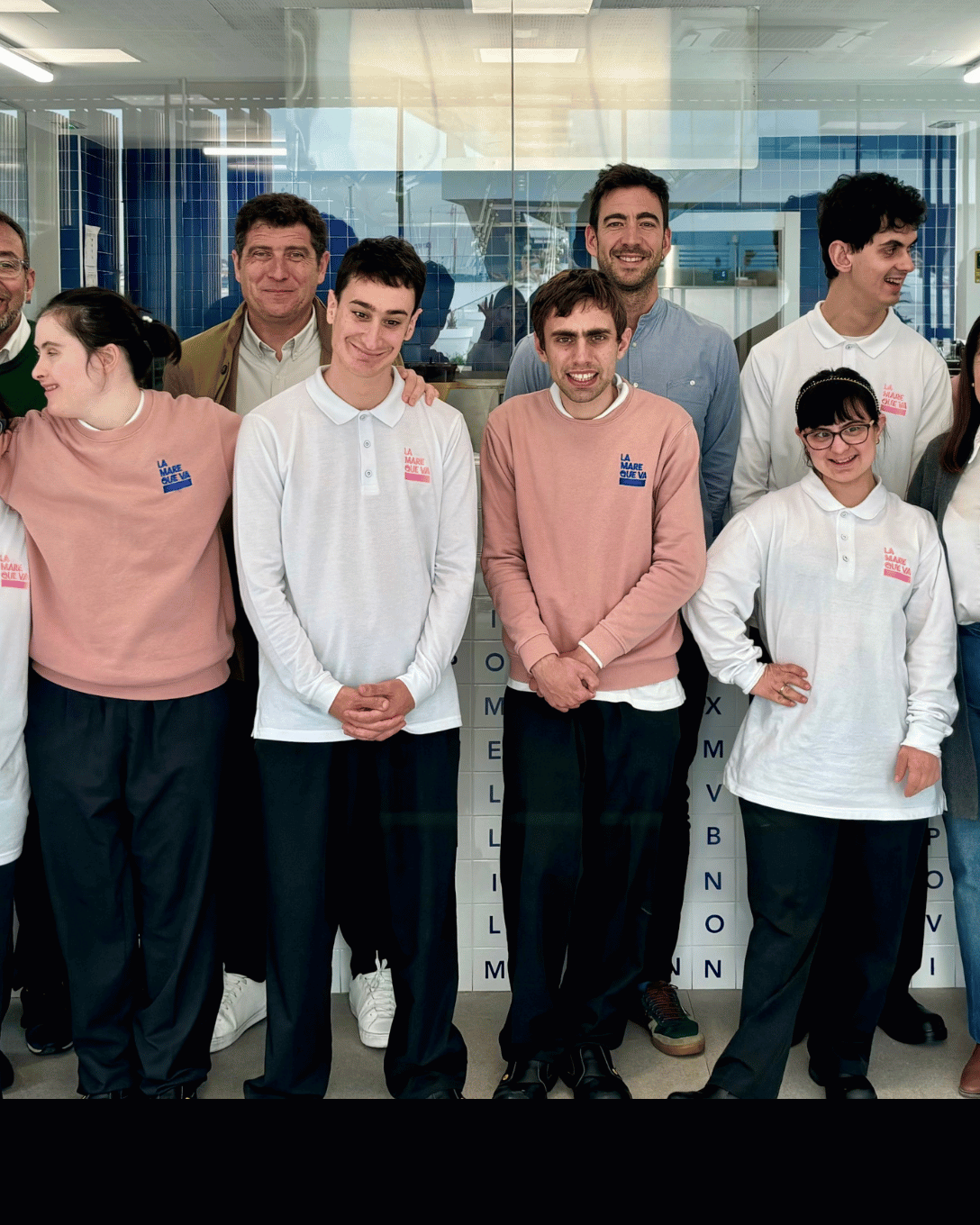The roller coaster of entrepreneurship is moving at great speed, so fast that five years have already passed since Startup Valencia was founded. Although the main KPIs demonstrate the remarkable progress of the Valencian startup ecosystem and its consolidation as the third most important tech hub in the country, according to data from the Bankinter Innovation Foundation observatory and the ‘Spanish Tech Ecosystem‘ report, it’s worth asking leading figures in the industry their opinion in order to complete the picture.
To get this feedback, there’s no one better than Sofía Benjumea, Head of Google for Startups in Europe, the Middle East and Africa, a woman who’s used to seeing the birth, growth and consolidation of entrepreneurial environments all over the world and with whom we have been able to discuss the topic.
What is Google for Startups, how does it work and why should it be applied to your programmes?
“At Google for Startups our mission is to pave the way for anyone, regardless of their socio-economic profile, gender, race or place of origin, to have access to the resources they need to launch and grow their startup. Entrepreneurship is not an easy task, in fact, it’s quite the opposite. Entrepreneurs, especially in the early stages, encounter a multitude of obstacles.
We want to guide these people who embark on entrepreneurial ventures and who find themselves in these stages. That is why, since the inception of Google for Startups in Spain in 2015, our goal has always been to put the best of Google at the service of the entrepreneurial ecosystem, including our products, best practices, experience and extensive network of industry experts. In fact, in 2020 we launched the Growth Academy programmes, designed specifically to train people in the tourism, health, E-commerce, digital transformation and sustainability sectors. We did this because although there is a common denominator in entrepreneurship, each sector poses different challenges and strategies.
In addition to the purely educational aspect, having a common place to work, such as Google for Startups Campus Madrid, facilitates and encourages networking; something that entrepreneurs consider fundamental because the challenges that one company faces may have been previously faced by another, and seeking solutions together with the help of our experts is what the startups that have gone through our programmes over the last seven years value most.
How it works is simple. At Google for Startups we are continuously generating programmes that all types of Spanish startups can apply for, wherever they are, and they can do so through our website“.
What changes have you observed in the Spanish entrepreneurial ecosystem since the beginning of Google for Startups and Google for Startups Campus Madrid?
“The ecosystem has matured exponentially since we opened the Campus doors in 2015. That year investment in startups in Spain broke records with €600 million; seven years later, we reached €4 billion invested in Spanish startups. In addition, there is growing interest from international funds, which now account for 80% of the value.
We have also seen the ratio of female entrepreneurs grow. While it’s still a very low figure nationally (18% depending on which studies you look at), in the Google for Startups community 45% of startup founders are women, an increase from 40% in 2018″.
What is your opinion of the Valencian startup ecosystem, what do you know about it and what would you say are its main challenges?
“The Valencian tech hub has greatly evolved in recent years and this is largely due to the efforts of organisations such as Startup Valencia and Lanzadera. In fact, it’s putting itself on the map of entrepreneurship in Spain and Europe. The creation of this type of organisations and of large, relevant companies that promote and support entrepreneurship means that, just as in other cities such as Madrid or Barcelona, startups find the support and resources they need to develop their projects.
One of Spain’s competitive advantages in terms of its entrepreneurial ecosystem is its diversity. In other European countries, a large part of the ecosystem is centralised in the capital, but in Spain we have the very unique quality of boasting more than just one hub, as can be seen with Barcelona, Valencia, Malaga and Bilbao. The key now is to interconnect these ecosystems.
What can startups and entrepreneurs do at the local level to accelerate the growth of their ecosystems? Why is it crucial to have this involvement?
“If there is one thing we have shown at Google for Startups, it’s that entrepreneurs are a key part of a country’s economy. Startups are an engine of growth and job creation, and these jobs are high quality jobs. In addition, they also play a fundamental role in helping many other companies go through their digital transformation, thanks to the tech aspect of most startups”.
Talking about employment, finding talent is one of the toughest battles that startups face today: is there a lack of professionals, is there a better life in the corporate world or in other areas outside the startup? How can we attract more talent to reduce the gap between supply and demand?
“There is a general lack of tech talent today. One of the main drawbacks for entrepreneurs who want to hire this type of talent is that they cannot compete in terms of salary with large companies and corporations. However, they do so through other benefits which allow them to be competitive with regards to established companies. These opportunities relate to flexibility, mission, impact on one’s own organisation, personal and professional development opportunities, and stock package for the future.
Why is the consolidation of tech events such as Valencia Digital Summit (5 years) or the recently held South Summit (10 years) important for entrepreneurs and startups?
“These tech events fulfil two key missions: they generate connections between the different players in the ecosystem and they are a way of demonstrating to the outside world the quality and quantity of startups that exist locally. They also serve to attract investors, talent and other companies that can help entrepreneurs and the ecosystem in general to grow. At these types of events, such as South Summit or Valencia Digital Summit, different actors of the ecosystem from different sectors and with different roles converge and all of this, without a doubt, is an added support to continue making it grow”.



